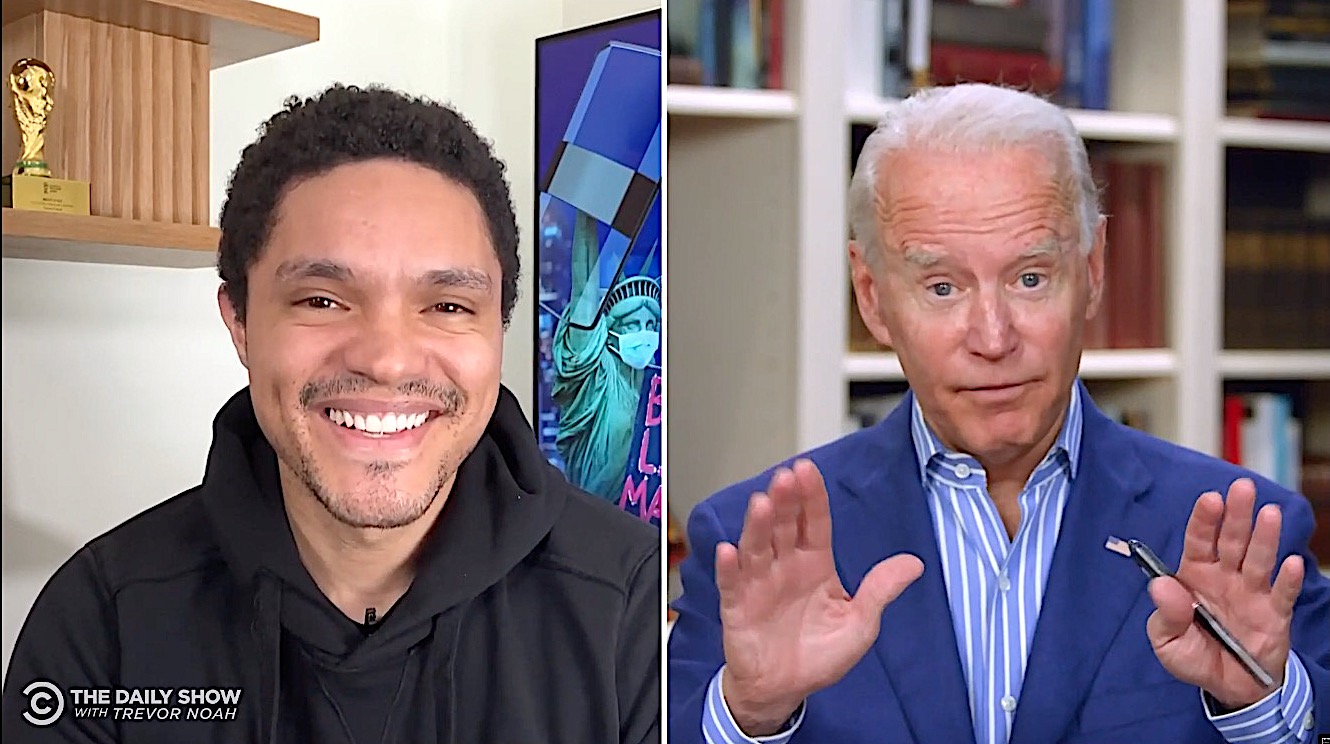Joe Biden and Trevor Noah talk fixing the police, what happens if Trump loses and won't leave


A free daily email with the biggest news stories of the day – and the best features from TheWeek.com
You are now subscribed
Your newsletter sign-up was successful
Trevor Noah started his interview with presumptive Democratic presidential nominee Joe Biden on Wednesday's Daily Show by asking about systemic racism, a topic Biden had addressed in a USA Today op-ed Wednesday. "It's gonna take time," Biden said. "Donald Trump didn't invent racism, but he sure has promoted it." But what really fueled the civil rights movement in the 1960s was television, he said, and now "not only should cops be wearing a body cam, everybody had a body cam, everybody has a cellphone," and one reason George Floyd's death was so "consequential" and "one of those inflection points" is that we all saw him say his last words and breathe his last breath.
Noah asked if Biden thought police departments could be reformed and if they should be defunded. Biden said he thinks "fundamental changes" can be made "without having to defund police completely," He noted that 90 percent of police budgets come from local governments, and said what the federal government can do is use its leverage to ensure police publicly report all police misconduct, adhere to a prospective "national use of force standard," end jail for drug use and reduce (but not end) their role in addressing homelessness and mental illness.

"I think it's safe to say that America is expecting a really dirty election," Noah said. "We know how Donald Trump plays in an election," and "you know that he will punch below the belt." How will Biden react? He compared Trump's campaign to a "carny show" and said America won't be fooled twice by Trump's parlor tricks. Trump will play dirty, Biden said. "The good news is that people know me, and they know me warts and all. The bad news is people know me."
The Week
Escape your echo chamber. Get the facts behind the news, plus analysis from multiple perspectives.

Sign up for The Week's Free Newsletters
From our morning news briefing to a weekly Good News Newsletter, get the best of The Week delivered directly to your inbox.
From our morning news briefing to a weekly Good News Newsletter, get the best of The Week delivered directly to your inbox.
When it comes to actual voting, "my single greatest concern: This president is going to try to steal this election," Biden said, pointing to Tuesday's mess in Georgia and Trump's attacks on main-in ballots. "Have you ever considered what would happen if the election result came out as you being the winner and Trump refused to leave?" Noah asked "Yes, I have," Biden said, and given the military blowback Trump is facing now, "I promise you, I'm absolutely convinced they will escort him from the White House with great dispatch."
When it came to the running mate question, Biden had to let Noah down easy. Watch below. Peter Weber

A free daily email with the biggest news stories of the day – and the best features from TheWeek.com
Peter has worked as a news and culture writer and editor at The Week since the site's launch in 2008. He covers politics, world affairs, religion and cultural currents. His journalism career began as a copy editor at a financial newswire and has included editorial positions at The New York Times Magazine, Facts on File, and Oregon State University.
